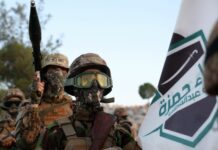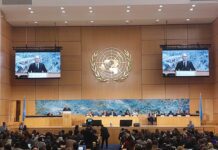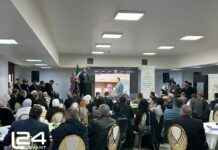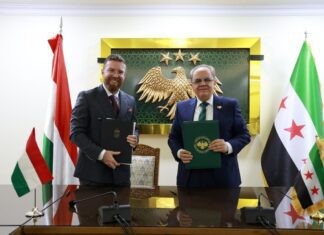
Aleppo, Syria’s second-largest city, is undergoing significant transitions following its liberation by revolutionary forces last Friday as part of the Repelling the Aggression campaign. This shift has brought improvements to essential services, with efforts underway to stabilize daily life for residents. However, challenges remain, including threats from continued airstrikes by the Assad regime and Russia, disruptions to infrastructure, and a strained healthcare system.
Revolutionary institutions have worked swiftly to restore services in Aleppo. Electricity is now available in many neighborhoods for up to 22 hours daily, a stark improvement from frequent outages under Assad regime control. Water has begun to return to several areas, with critical repairs made to the Suleiman Al-Halabi pumping station, which supplies western Aleppo.
Syria Phone, a telecommunications provider operating in liberated areas, announced the installation of coverage towers in multiple neighborhoods to restore internet and mobile services. These efforts aim to resolve longstanding communication gaps that have hindered economic and social activities in the city.
Bread availability has also improved. The General Organization for Grain Trade and Processing has reactivated public bakeries, while private bakeries and local relief organizations, including the Turkish Humanitarian Relief Foundation (IHH), are supplementing supplies. Efforts like these are crucial for Aleppo’s densely populated neighborhoods, where food security remains a priority.
The health sector in Aleppo faces immense pressure due to the bombing of hospitals and a shortage of medical personnel. Revolutionary authorities report that only one-third of medical staff have returned to work, with many hesitant due to ongoing regime airstrikes targeting healthcare facilities.
The regime bombed the Aleppo University Hospital earlier this month, killing 12 people and injuring dozens. Dr. Omar Farouh, a volunteer physician, noted that fears of continued attacks and uncertainty under new governance have delayed the full resumption of hospital operations. Despite these challenges, some healthcare workers and volunteers from the Aleppo countryside have joined efforts to stabilize the medical sector. Initiatives like the Online Doctor program have also emerged, providing remote medical advice through messaging apps to reduce the burden on overwhelmed facilities.
The UN Commission of Inquiry on Syria welcomed assurances from revolutionary forces to protect civilians and uphold international law. Committee member Lynn Welchman praised their statements but urged them to match words with actions and provide humanitarian workers with resources to address urgent needs.
UN Special Envoy Geir Pedersen highlighted Aleppo’s progress under the new administration, noting improvements in services and the release of detainees previously held by the Assad regime. However, he warned that the ongoing conflict, particularly airstrikes on civilian areas, threatens regional stability.
The Free Aleppo Health Directorate condemned the Assad regime and Russian attacks on health facilities as war crimes. Minister of Health Mazen Dukhan of the Syrian Salvation Government (SSG) called on the international community to pressure the regime to cease its targeting of civilian infrastructure.
Aleppo residents remain apprehensive about the possibility of regime retaliation and the economic instability that has plagued the city. Bread prices fluctuate, some neighborhoods lack basic utilities and job losses continue due to business closures during the transition.
Despite these challenges, many residents express cautious optimism about the city’s future under revolutionary control. Improvements in basic services and a visible reduction in the oppressive security measures of the Assad regime offer hope for a better quality of life. Revolutionary leaders have pledged to continue their efforts to restore normalcy, ensure security, and address residents’ needs.
As Aleppo adapts to its new reality, the international community will play a critical role in supporting humanitarian efforts and pushing for a sustainable political resolution to Syria’s long-standing crisis.








